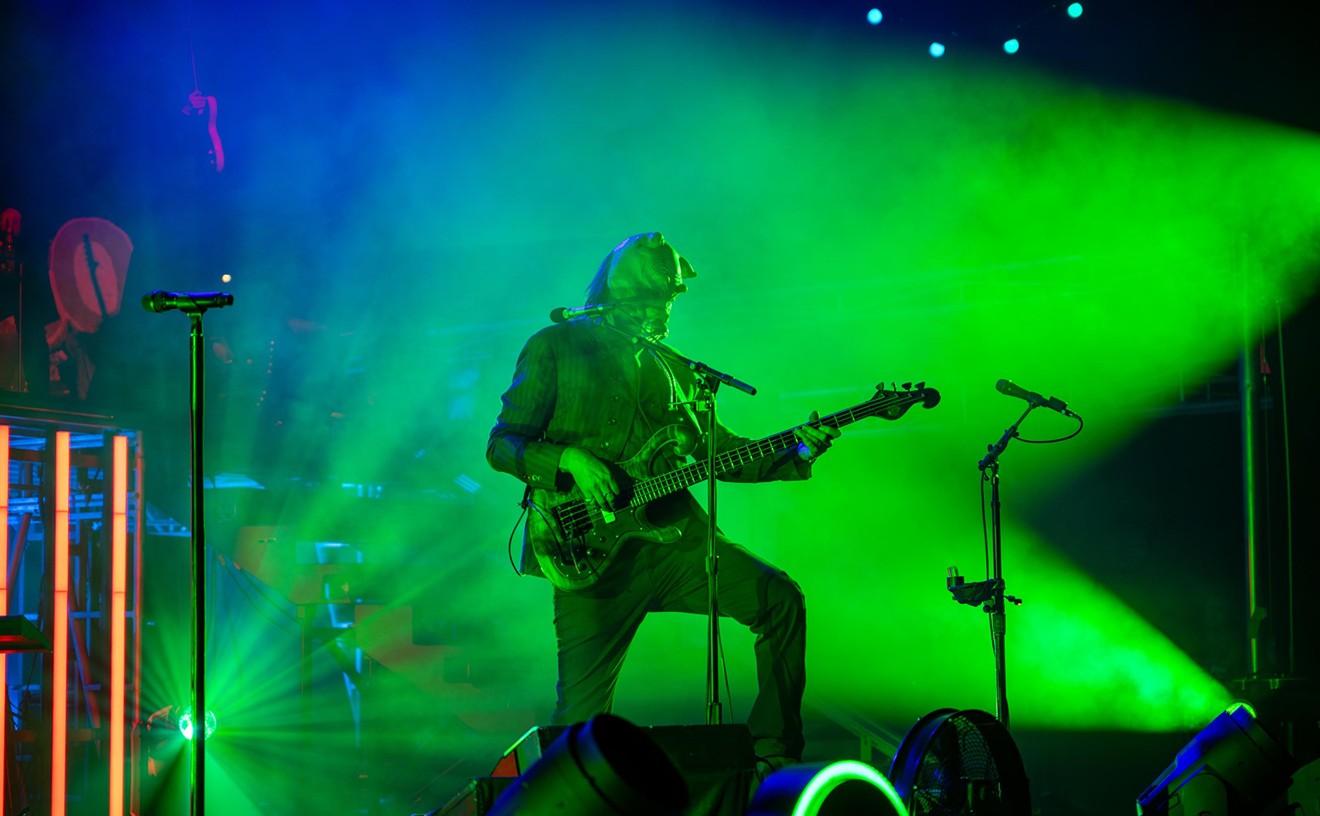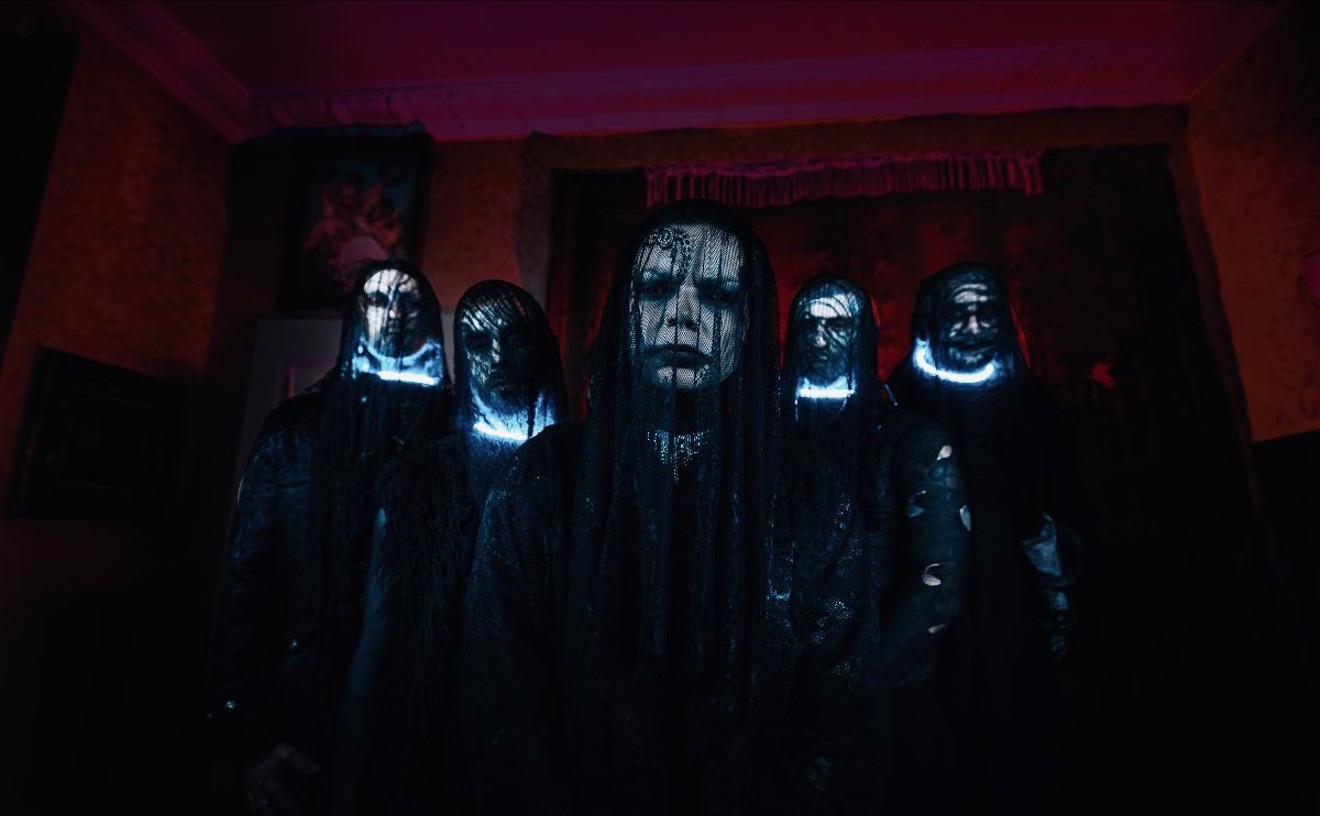In recent years, he's become more known as a talented spoken word artist who does voiceover work in cartoons, documentaries and the like. As a performer, Rollins is generous with his time, making audiences laugh and think as he discusses various adventures he's had in his ongoing travels both here and abroad. We spoke with Rollins shortly before his fiftieth birthday, commemorated in part by his current spoken word tour, about his stints with National Geographic and some of the projects he's worked on in recent years as part of his ongoing efforts to stave off boredom and stagnation.
Westword: This is going back several years, but who was the guy you were about to talk about but didn't when you elaborated on your dislike of Edie Brickell on "Hating Someone's Guts Part 1" from Talking from the Box? Do you still feel that way about anyone making music?
Henry Rollins: I don't remember who that was. That was an idea I had, in reference to the Edie Brickell thing, who I'm sure is a wonderful woman. It's that I found that kind of music unbelievably unessential and just gratuitous. Someone would probably say the same thing about everything I've ever done. It's kind of like, what are you turning youth into? What is this bullshit? It became college rock. And she, like I said, very nice, but I just saw that and came up with that idea. I had nothing against her, but [rather] what her music represented. "No, no, no, don't lose the will to fight."
So many of those bands around that time became kind of safe music, and I didn't think it was the time for safe music. There's always a place for it, but it seemed like really what everyone wanted. I like to eat macaroni and cheese, too, but you can't do it too often. That was kind of like comfy music, and I thought, "No, we're not in a comfy time," and I still kind of feel that way.
You've been involved in some recent National Geographic documentaries?
I've been working with National Geographic for quite a while now doing voiceovers, and now I'm in front of the camera. In December we released a documentary which we shot last July about the Monoamine Oxidase A gene [Born to Rage ], otherwise known as the "warrior gene" or the MAO-A gene, which is found in thirty percent of the male population and skews for violent or aggressive behavior.
It didn't light me up, but NatGeo asked if I wanted to be part of it, and I said, "Yeah sure!" because it's interesting enough. I always felt myself to be an angry person, and I found out they were going to test me, and I wanted to find out. I think the nature versus nurture discussion is of complete interest to me, in that, I think, we, homo sapiens, are a product of our environment.
I think it's interesting what that environment engenders in someone later on. Like the guy getting the crap kicked out of him by mom and his alcoholic dad and ends of being Dad of the Year just because he said, "Not on my watch. It happened to me, and there's no way I'm going to do that to someone else."
That's usually what happened to me, where people were abusive to me when I was young, and it made me understand being abused. It was very easy for me to go there because I was so well-versed in it and having had to run from it. When I see other fellow weirdos, I never hold any rancor toward them because I'm like, "Yeah, they're always stepping on you for being different." I was the guy sticking up for the gay guy getting shoved around, "Man, leave him alone, or you've got big problems with me." It was interesting thing being involved with that documentary, and I think it came out pretty good.
There's a new one we got the week after about snakes for National Geographic Wild. I'm not afraid of snakes, and I've been handling them since I was eleven. They asked if I could handle snakes, and they didn't know that about me. It's an interesting bit of work in general.
So you were tested for the MAO-A gene?
Oh yeah! You scrape the inside of your cheek and send it in to familytreedna.com. They'll test your DNA and your mom's DNA. A lot of people do it to see who they're related to. The film crew and the producer of the documentary all got tested.
It turned out, I did not have that gene, which is great. I love that I am the way that I am as a product of my own determination and where I come from. I wouldn't want to just blame it on the gene. It's like looking at a dog and going, "Well it's the breed." "No, your dog's an asshole, it just bit me." "Well it's the breed." "Fuck you and your breed." If someone's going to say that about me, that's a cop out, so I'm glad I have it.
If you watch the documentary the people you think will have it don't, and the people you don't think will have it often do. What you find out is that the science is not exact, and there's so much work to be done with it. We're very complex, and it could take quite a long time before science even has a handhold. I like that we get to be mysterious.
Why did you do that ad for Verizon?
Because it's work. They needed a voice, and I've got one. I've done voiceover work for all kinds of cartoons and documentaries. For me, it's like making sausage. I say no to alcohol, and Burger King asked me to do something years ago, and I said, "No." If I nitpicked, I could find something wrong with almost any company I've done a voiceover for. I love competing for something. I love going out there and winning and pulling my weight in the world. I don't like a day with nothing to do. It's not an ideological thing, and I don't lose sleep over it.
When someone says, "I saw this really shitty movie that you're in. Why did you do that?" Ask Christopher Walken about that. When I interviewed him, I said, "I heard you like to wake up every day and reach over and find a movie script." And he said, "Yeah." "I've seen you in some in some low rent films." And he said, "Oh, you should see the ones that won't even get to be seen because they can't even find licensing. I work all the time."
He's in a Tarantino film one month and then a student film. He comes from an immigrant, utilitarian attitude of "It's work, and I'll take it." No frills, he does not care. He's really humble and grateful. Which is refreshing. In my fractionally talented way, I'm desperate for work, so I say "Yes" to a lot of things. I do a lot of work for free. The radio station I work at, they're bringing a bunch of kids in Belfast where they ask if they want to learn to be a DJ at a radio station.
So they said, "Hey, would you come in on a Saturday before your show for a few hours and sit with a bunch of kids from this high school and a bunch of kids from Belfast and help them be on radio?" It completely bums my day off, but how can I say no to that? Those people want to be on the radio and I can help? I'm in.
How did you get involved in performing Dark Side of the Moon with The Flaming Lips?
They asked me. Kliph [Scurlock], the bass player, wrote me and said, "Hey, we're doing this thing; do you want to be a part of it?" I was in the studio editing a talking record, and I asked the engineer if he had a copy of Dark Side of the Moon because I'd never heard it. He said, "Are you kidding?" The recording studio was at his house, so he ran upstairs, and, of course, he, being an American, had a copy of the record. Me, being some socialist scum, I guess I don't. I have no Pink Floyd records.
I listened and did three maybe four takes of every single thing they needed just so they had options--different speeds, different levels of loudness. We put it all in a YouSendIt file and sent it to Kliph and the band. Then Kliph called, and I said, "Okay, did that cut the mustard?" He goes, "Are you kidding? It's already on the album. It's perfect, and it's done."
So I said, "Call us here at the studio to tell us if you need anything else." Kliph eventually called to tell me they were mixing it and that I was on the record and, "Thanks." They gave me an LP and a CD of it, and that's all I got. There's nothing in it for me but my name is on the record, and I met half the band.
You didn't perform it live?
No, no. They didn't ask me. I think they've been doing it live here and there. They probably asked Peaches. But I say "Yes" to all kinds of stuff. Life's short, might as well do stuff. I don't say "Yes" to everything. When you start doing benefit stuff tons of NGOs kind of lean upon you.
Henry Rollins, 7p.m., Sunday, April 3, Soiled Dove Underground, Sold Out, 303-226-1555, All Ages
Follow Backbeat on Facebook and on Twitter at @Westword_Music.











